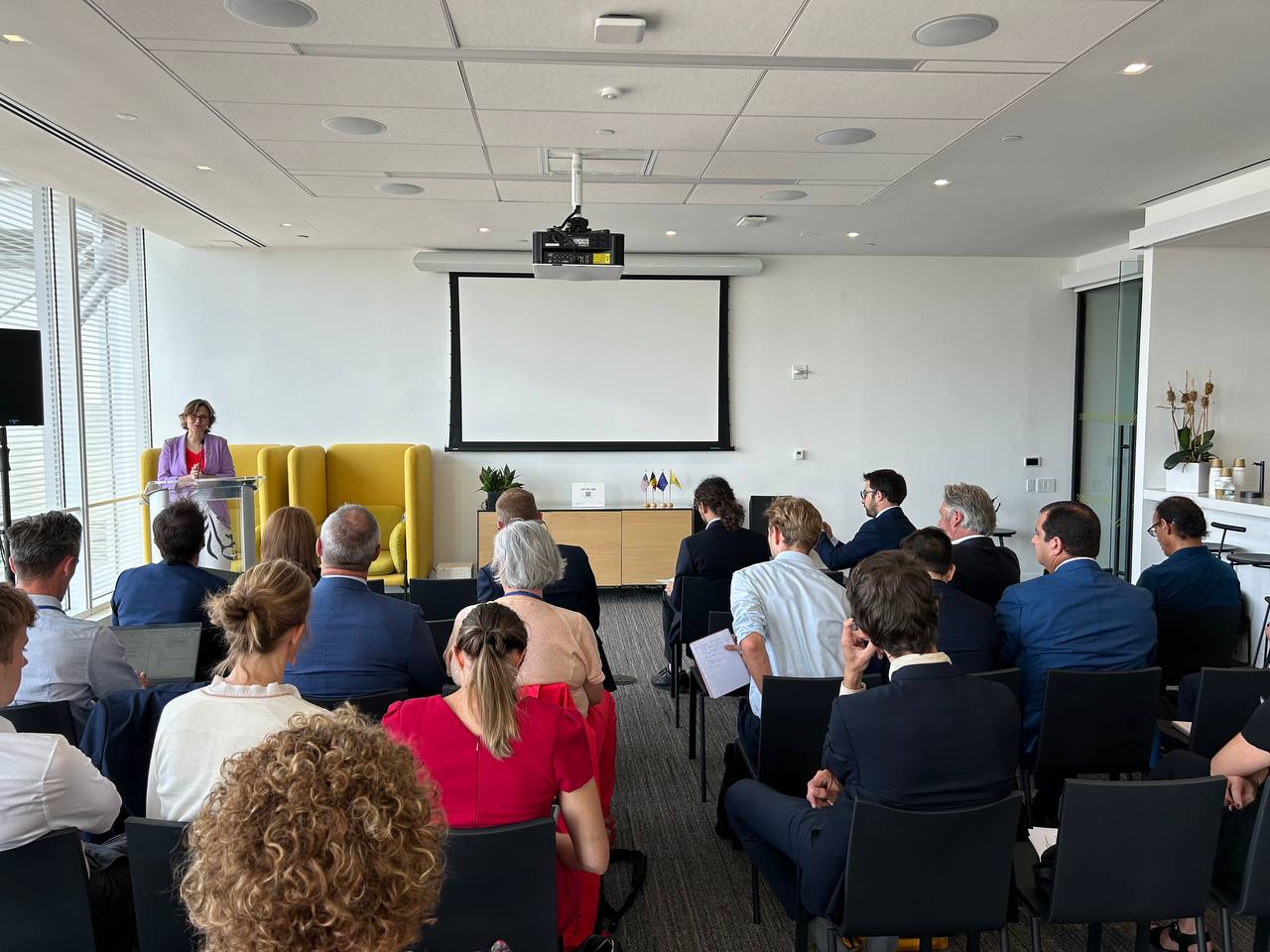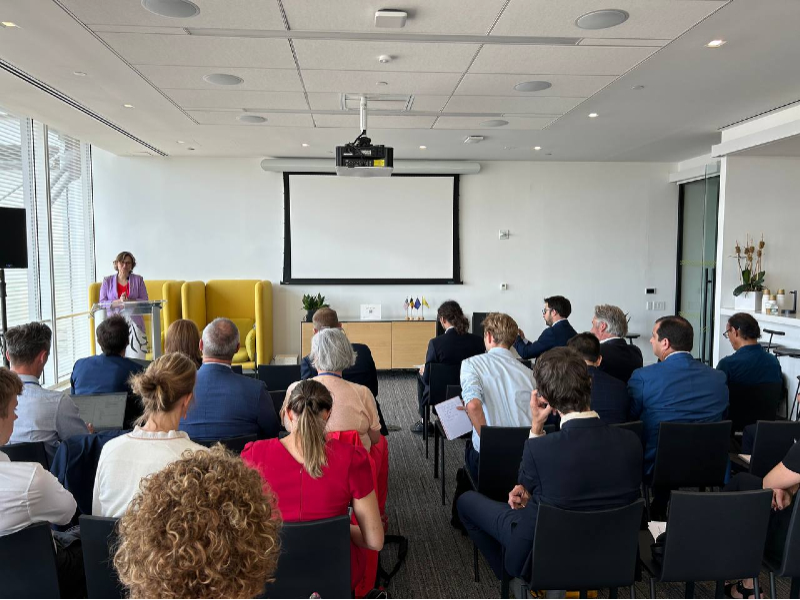- Serret spoke at an event organized by Regions 4 and the Government of Flanders in New York on the occasion of the UN High-Level Political Forum
- The FA Minister showed several projects that the Catalan Government is working on to meet the 2030 Agenda, such as the Rural Agenda of Catalonia, the Catalan Energy Prospective 2050 or the National Water Board

The Catalan Minister of Foreign Action and European Union, Meritxell Serret i Aleu, presented on Tuesday the Catalan Government's initiatives to adapt to the effects of climate change in Catalonia. She did so in New York as part of an event to share innovative projects in response to global water and energy concerns, such as the drought and the green transition. The event called Innovative approaches to the water-energy nexus at regional level was co-organized by Regions 4 and the Government of Flanders on the occasion of the United Nations High Level Political Forum on Sustainable Development, which is taking place this week in New York.
During her speech, Serret emphasized "the significant impact of climate change" in the Mediterranean region, for which "a structural and transversal response is required." Minister Serret exposed examples of the Government's efforts over the last year to manage the current drought situation in Catalonia and prepare the country for a future with water shortages, as well as efforts to underpin the energy transition, such as the creation of a public energy company, L'Energètica. "We need to act quickly and strengthen our capacity to generate energy," Serret insisted in front of government representatives from around the world.
Together with Minister Serret, Minister President of Flanders, Jan Jambon, as well as ministers and representatives from the governments of Yucatan (Mexico), Cordoba (Argentina), Basque Country, Gossas (Senegal), and Quebec shared their regional governance innovation to implement the Sustainable Development Goals (SDGs).
Daniel Pérez, director of L'Energètica, also spoke at the event, highlighting the process of establishing Catalonia's public energy entity as an example of effective government practice in accelerating the energy transition.
Commitment to the 2030 Agenda
During the session, the Minister of Foreign Action and European Union showed several projects that the Government is working on to meet the 2030 Agenda, which was established eight years ago. In this regard, the Rural Agenda of Catalonia, the Catalan Food Strategy, the Catalan Energy Prospective 2050, the National Water Board, and the Catalan Strategy for Climate Change Adaptation, among others, are some of the initiatives that have been promoted in recent years to land the Sustainable Development Goals in Catalonia.
Serret also mentioned that the government established the Aliança Catalunya 2030 in 2020, a wide country coalition open to all Catalan society to share knowledge, resources, and best practices, as well as to encourage collaborative projects to meet the SDGs. Currently, this cooperation includes around 80 public and private organizations.
Serret also used today’s occasion to reiterate the Government's firm commitment to promoting the Mediterranean macro-region, an initiative led by Catalonia in collaboration with the French region Provença-Alps-Costa Blava with the goal of strengthening cooperation throughout the region in order to address its challenges and threats. "The Mediterranean macro-region aims to tackle climate change, act in areas such as water and waste management, and ensure a real impact on the region," the minister noted, adding that "the future of the Mediterranean is key to the future of Europe and involves actors from all shores."
About Regions 4
Regions 4 exemplifies the Catalan Government's lengthy history of international relations. Catalonia has been a member of this international network of regional governments working for sustainable development since its inception in 2002. Region 4 currently represents 41 territories from 21 countries across four continents.


